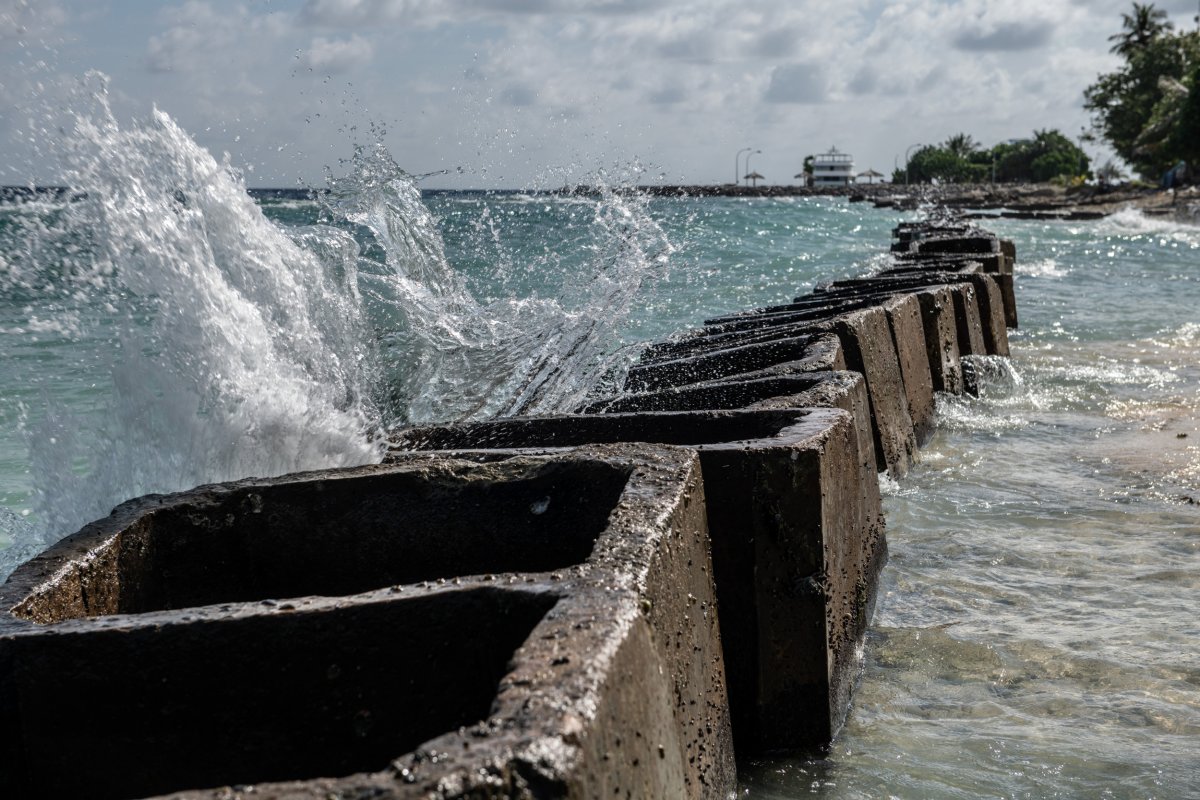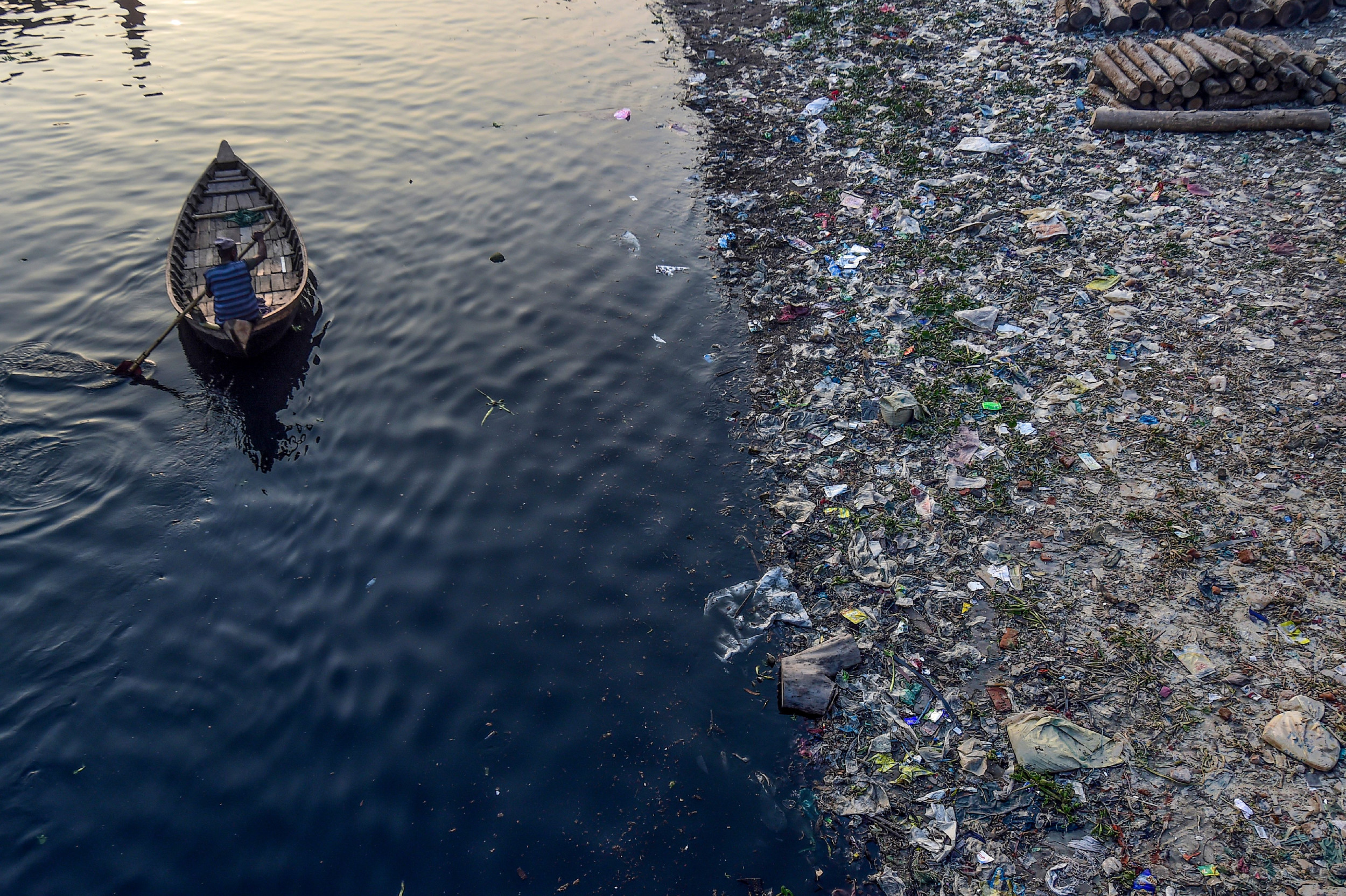Rising sea levels are swallowing up the Maldives. Nowhere is the threat more devastating or more urgent.
Global carbon emissions are on track to cause an increase of 1.5 degrees Celsius of warming by 2030, according to the latest findings of the Intergovernmental Panel on Climate Change. Warming beyond that level will accelerate the loss of polar ice and cause sea levels to rise above the average elevation of the Maldives, which stands just four feet above sea level. Scientists suggest sea levels could rise by as much as 5 feet (or 1.52 meters) by 2100.
Ideally the world's biggest emitters would respond to this threat by taking decisive action to curb their greenhouse gas emissions. If they did, the Maldives and all small island nations might have a fighting chance of survival. As it is, global emissions are rising, not falling.
Failing the Maldives means failing us all. If the Maldives sinks, it will also be time up for hundreds of millions of people who live in low-lying areas across the world. A rise in sea levels big enough to swamp the Maldives will also swamp Manhattan, Miami, Mumbai and Shanghai, as well as much of the Netherlands, Bangladesh and small island nations.
Other countries might respond to sea-level rise by relocating coastal populations. But there is no higher ground for the Maldives. While mammoth efforts are needed to curb emissions, the Maldives does not have the luxury of time. It needs to start adapting to global climate threats now.
Maldivians, who number half a million, do not want to join hundreds of millions of potential climate refugees in the future. They do not want to abandon their homeland, any more than Americans, Australians or Germans would wish to abandon theirs.
Keeping threatened coastal populations at home means having to deal with the consequences of rising sea levels, including a shrinking land mass, constant flooding and the contamination of groundwater reserves. Already, 97 percent of the Maldives no longer has fresh groundwater. The country has become completely dependent on collecting rainwater, and on expensive desalination and bottled water, for its drinking water needs.
In 2016, many islands lost their front line of defense when a coral bleaching event killed about 60 percent of the reefs that act as a buffer against storms and sea swells. Coaxing these reefs back to life, by seeding new structures with micro-organisms, is a hit and miss affair. Warmer oceans and acidification complicate these efforts.
An Unfair Burden
The Maldives already spends about 50 percent of its $2.5 billion national budget on adapting to climate change. This outsized effort comes at the expense of spending on education, health, housing and economic diversification. But so far, rich and powerful countries have largely neglected to step forward to help foot the bill.

It won't be possible to save nations like the Maldives without significant international resources for climate adaptation. Back in 2009, rich countries pledged to raise $100 billion per year to help developing countries fight climate change—but the fundraising has so far fallen short of this low-bar target. Compare this sum to the $700 billion U.S. bailout of a handful of big banks and lenders after the 2008 global financial crisis, or the trillions of domestic COVID-pandemic bailouts in G20 economies, which make the funds pledged for climate change look like small change. And yet, nothing today is more systemically corrosive to the world economy than this.
Even where funds are available, bureaucracy conspires to keep it from reaching the people who need it the most. The Maldives has invested years of precious time to access international climate funds. But even modest projects, costing just a few million dollars, demand reams of data, sometimes going back decades. The Maldives and many other developing countries just don't have that. At this pace, the Maldives will be sure to sink and with it most other low-elevation settlements around the globe. Access to such funds can and must be speeded up. But they won't be enough.
The only real solution is to think big and act at scale. Big, because there are many options to go beyond U.N. promises and truly shift the trillions of resilient investments needed in the world economy by 2030 to secure our future. For that, we should first look at the debt currently owed by poor, climate-vulnerable nations to rich ones. If we restructured all or much of this debt by allowing servicing payments to be reinvested in making the underlying assets more resilient and secure, everybody wins. This could immediately free up far more than $100 billion a year for nature-based and resilient investments and creditors would be satisfied with better safeguards against losses triggered through climate catastrophe.
Further big financing initiatives can take inspiration, for instance, from the African Union-backed $25 billion Africa Adaptation Acceleration Program initiated by the Global Center on Adaptation and the African Development Bank last year. South Asia and small islands desperately need such a funding program of their own. We need more moves like the International Monetary Fund's channeling of finance from its latest $650 billion of Special Drawing Rights into a Resilience and Sustainability Trust to support poor and emerging nations and the V20 finance ministers' proposed guarantees scheme, which could leverage $15 of climate adaptation and renewables projects for every $1 of public funds contributed.
We know that overcoming the COVID crisis needs the concerted mobilization of rich and poor nations, and trillions of investment in health care and economic recovery programs. The climate crisis is the Big Brother of the pandemic, and the Maldives and vulnerable nations like it are the warning signal. Deliver for them and we'll all be better off.
Mohamed Nasheed is a former president of the Maldives.
Patrick Verkooijen is CEO of the Global Center on Adaptation.
The views expressed in this article are the writers' own.
Uncommon Knowledge
Newsweek is committed to challenging conventional wisdom and finding connections in the search for common ground.
Newsweek is committed to challenging conventional wisdom and finding connections in the search for common ground.
About the writer
To read how Newsweek uses AI as a newsroom tool, Click here.








